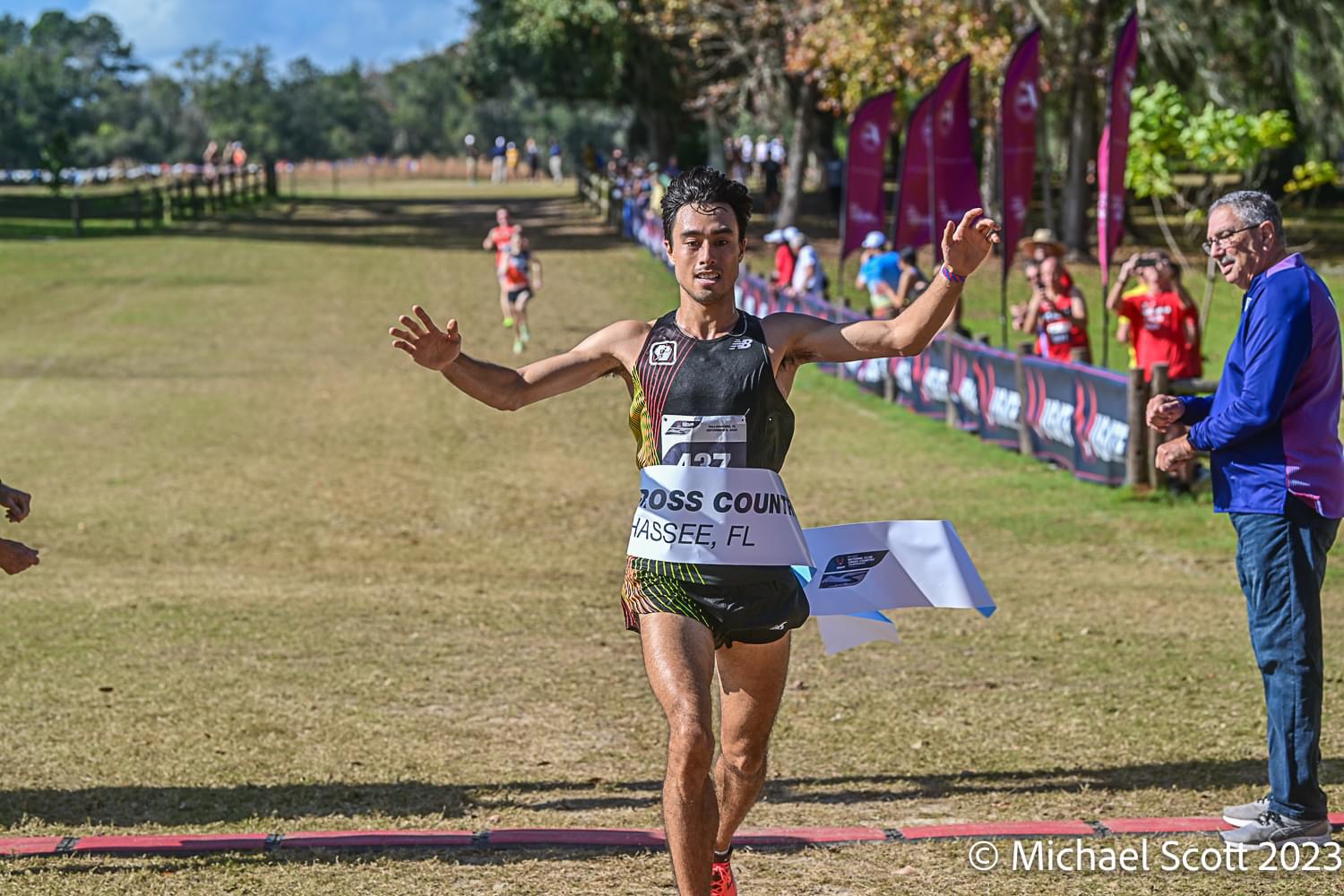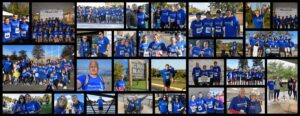
In 2013, runners from the D.C. region traveled more than 37,000 miles to finish marathons as near as Baltimore and as far as Honolulu, and that’s before we count trips to marathons on other continents. This region may play host to the venerable Marine Corps Marathon and the fresh-faced Rock ‘n’ Roll USA Marathon among more than a dozen others, but it’s safe to say that runners here have shoes, will travel.
What’s not to love about a destination race? You can choose a course that plays to your strengths, take a 26.2-mile tour of another city, or visit friends and family. Sure, you might struggle with jet lag, toss and turn all night in an unfamiliar bed, or realize that you left one of your shoes back in Bethesda. But you’re also about to share an experience with hundreds or thousands of fellow marathoners who know all the highs and lows of a training cycle and who want you to succeed only slightly less than they want to beat you across the finish line.
Ask any habitual destination racer and they’ll inevitably speak of “catching the bug,” a shorthand for wanderlust mixed with marathon obsessiveness that drives (or flies or buses) marathoners to yet another race in yet another city. Runderlust? The bug is part justification, an external force compelling them.
Washingtonian Andy Austin said being able “to go explore after having [run a marathon], having that sense of accomplishment, and feeling like ‘Yeah, I earned this trip,'” as some of the most satisfying parts of traveling to the 10 marathons he has completed.
The bug is also a manifestation of who we are as runners. Of course we could take these same trips without injecting 26.2 miles of crowds, hills, cobblestones, dehydration, cramping, or exhaustion. But would you ask an art enthusiast to skip the museums?
“Part of keeping my momentum and keeping me running is seeing new sights,” said Mabinty Koroma of Hyattsville. Koroma has completed four marathons and aspires to run a marathon each year for the rest of her life. She doesn’t plan to run one in D.C. soon. Of travel races, she says, “I can look at … the sunset here in San Francisco, or look at the neighborhoods in Chicago, whereas in D.C., that’s my training ground. I’m a native Washingtonian. I love the city, I love running there, but a part of my excitement of running a full marathon is doing it elsewhere.” Her most recent finish was April’s Dusseldorf Marathon, an entry she won in a drawing at last year’s San Francisco Marathon expo.
“Is there any better way to see a city than to run through it?” Scott Brawley said. The Washingtonian and former rugby and soccer player plunged right into marathons three years ago, running Marine Corps two years in a row with a charity training group before completing the Paris Marathon in 2013. That race was “the best of Paris in a sightseeing tour, with thousands cheering you on,” he said. This year, he will run the Marseille Marathon, and he hopes to complete marathons in French wine country and Sydney, Australia.
For some runners, major urban marathons don’t have the same draw. Arlington’s Liam Quinn has run marathons in Philadelphia, Quebec City, and D.C., but he praises the Vermont City Marathon in Burlington as a favorite, and he won the inaugural Hambletonian Marathon on the country roads of Goshen, N.Y. in 2013. In a smaller or more rural race, he said, “there’s less pressure about it in every way, shape, and form, from the hustle and bustle to the approach towards the race itself.” Quinn praised the Hambletonian and Vermont City marathons for exemplary organization and scenic courses that let him escape from his usual urban training environment.
The biggest downside to winning a race as new and small as the Hambletonian, he said, is that, “I did feel like the invader there, trying to steal the thunder of the locals. Sort of the Ivan Drago to their Rocky.” He is curious to see the race grow, but uncertain about returning. “I’m afraid that as it gets bigger, it’ll just attract faster runners, then I’ll have to be concerned about that,” he said, laughing.
Quinn races about two marathons each season and has raced 20 marathons. Understandably, “cost is definitely a concern,” he said. “It’s great to have the marathon as an excuse to go somewhere new,” but with the frequency of his races, he tends to stay close to home and combine his trips with visits to friends and family. As he said that, he was staying with a friend before running the Delaware marathon, and when he won the Hambletonian, he spent the weekend at his parents’ house. For a man who once flew from Seoul, South Korea, to run the Boston marathon, the minimalist travel approach seems to be working.
Mastering imperfection
Traveling to a race means sacrificing some level of control in exchange for a sense of accomplishment and a few days of travel. The lack of comforts can throw runners for a loop no matter how much they prepare and yet they continue to book the flights, study the languages, go farther, go faster. Austin has felt this a little too keenly in his marathons.
His third, the 2001 Dublin Marathon, was something of a comedy of errors. He remembered the blood sausages in the hotel’s continental breakfast and his snoring roommate who checked out without paying for his room service.
Yet he continued to log marathons, once training in the D.C. winter for the Miami Marathon. He even stayed on East Coast time to better make the 5 a.m. start at the Honolulu marathon. After that race, he went skydiving with members of his training group.
“You don’t have all the comforts that you would normally do,” he said. “But the tradeoff is much better.”
Brawley seconds this, recalling that he couldn’t find bagels or oatmeal in Paris and that the Metro stairs were less than friendly to an achy marathoner. “I also felt compelled to use my post-race days sightseeing, which was entertaining as I hobbled around Paris. In hindsight I should have rested,” he said. So why would he put himself through the physical agony of a marathon, plus the added discomfort of tourism on tired legs? In short, “it’s Paris.”
Koroma even found that no amount of intensive research, training, planning, not even three hours of rain in Dusseldorf, could ruin a destination marathon. For her efforts, she gets to know more about the people of each city she visits. “Each city kind of has a different vibe and energy. Like about San Francisco, people were more laid back. They didn’t have the energy of people of Chicago. The people of Chicago have so much energy. They were so amped. I think that really got me going and got me moving faster,” she said. And the Germans, she recalled, would run alongside her if they thought she was slowing down.
If the marathon is a test of human endurance, a destination race is a further test of each runner’s adaptability. Success or failure depend on how well you can go with the flow and enjoy the race, the trip, or both. In fact, no one wanted to impugn a race where they had a less-than-perfect experience.
“The race is an important part of the weekend, but it’s not the only thing about the weekend,” Quinn said. “Because you’re traveling, you actually make a trip of it.”
This article originally appeared in the July/August 2014 RunWashington.
Recent Stories
Looking for our race calendar? Click here Submit races here or shop local for running gear
James W. Foley Freedom Run
Inspired by the moral courage of freelance journalist James Foley, the mission of the nonprofit Foley Foundation is to secure the freedom of Americans held captive abroad unjustly by terrorist organizations or rogue states, and to promote journalist safety.
The
Kensington 8K Race
Since 1994, the Kensington 8K Race has been a favorite DC area fall race – a fun, fast event with beauty, challenge, and excitement. Run it this year on Saturday, September 21, 2024!
The 8K distance is $39, with a






